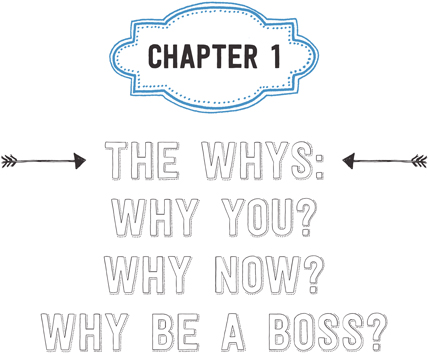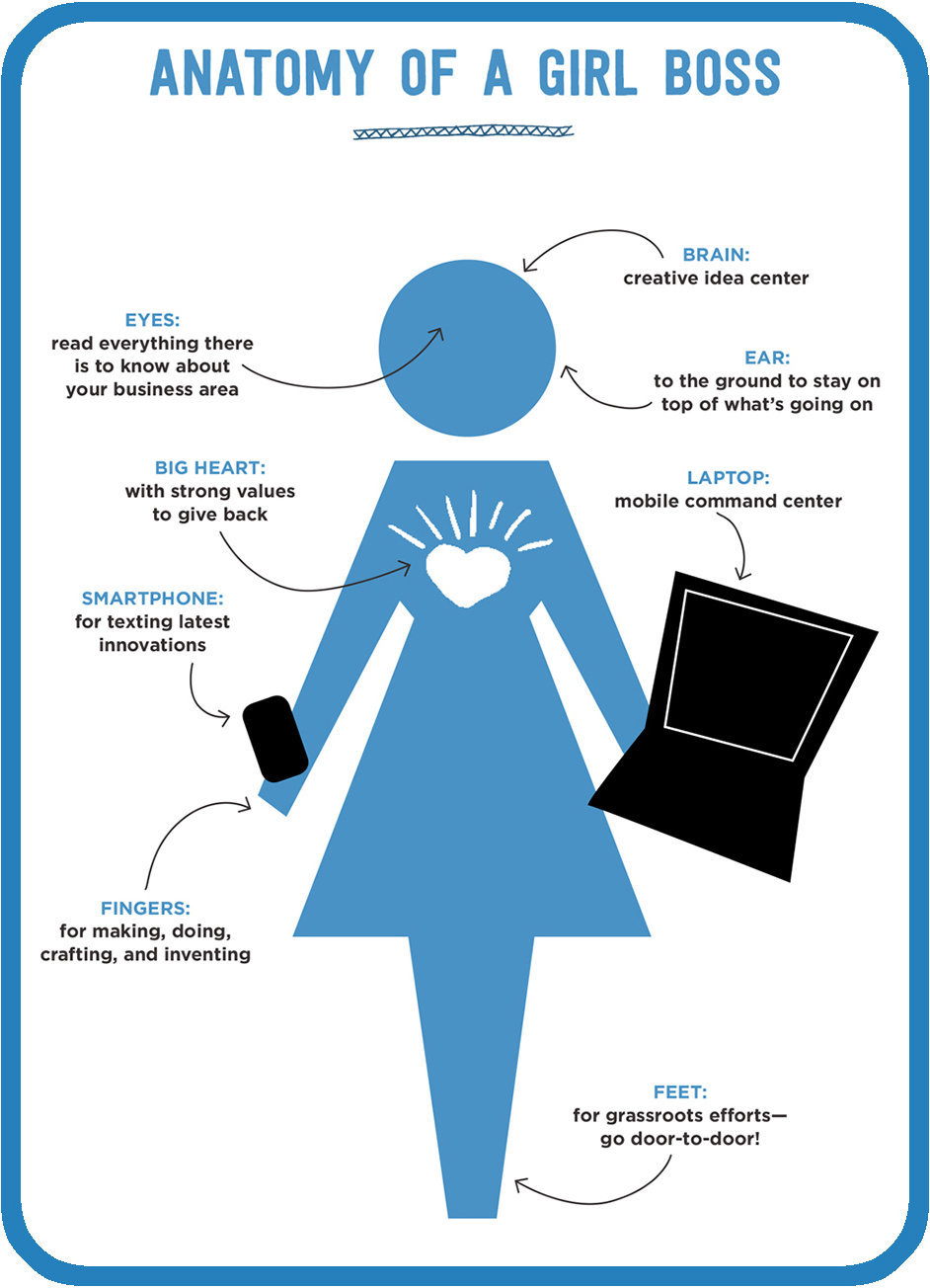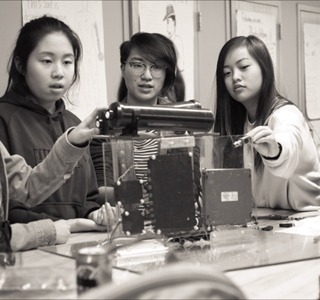People sometimes talk about wishing they could go back and do things all over again with the benefit of knowledge that only comes with experience. As we go along in life and in the business world, we learn lessons we wish we’d known when we were younger.
But the other reason people talk about wanting to go back is that they realize there’s a freedom in not knowing everything. When you haven’t had mountains of experience, you don’t have as many voices inside your head questioning your every move. You haven’t been told no a hundred times, and for all you know, you’ll never hear a discouraging word. There’s a beautiful luxury in making plans without feeling constraints. So for now, make use of the fact that you don’t know everything, including your limitations. It’s Part Two of thinking big. Think without self-censorship.
The advantages of youth: an attitude of invincibility, a little stupidity, fresh ideas, ideas that come from a “do what you know, do what you love” mentality, tech savvy.
What young entrepreneurs still need to learn: the money stuff, the management stuff, the grown-up stuff that isn’t fun but is necessary for success beyond the walls of your bedroom.
THE WALLS ARE COMING DOWN
Twenty or even ten years ago, if someone had floated the idea of 16- and 17-year-olds running business with profit margins and employees, there would’ve been a lot of disbelief. Maybe even snide laughter. No more. Today there are young entrepreneurs outearning their elders and starting businesses at a faster rate than ever before. They have ideas. They have energy. They are ready to get started. It’s time for you to join them.
BOSSES CAN BE 5. THEY CAN BE 17. THEY CAN BE 20. People may still be skeptical, especially if they are older and haven’t had a lot of exposure to young entrepreneurs with big ideas. Don’t let them discourage you. Think of every naysayer as an opportunity to educate a new person about what young women can do. This doesn’t mean you’ll encounter resistance wherever you go. But if and when you do, step over it and keep going.
There are amazing opportunities today for entrepreneurs of any age, especially now that technology makes everything faster, easier, and more accessible. You can do business with someone who lives halfway across the country—or the world—without ever having a face-to-face meeting (although face-to-face meetings are useful). You can use technology to set up your own website, launch your own Twitter feed, create your own brand, and market yourself. It doesn’t matter how old you are. If you have a great idea and you work at getting the word out, you can find an audience or a market.
YOU ARE SO BOSS
OF COURSE YOU ARE. If running your own business is something you want to do, you are Boss. Even before you hatch your first business idea or jot down the bare bones of a business plan, you are Boss. Being Boss means you’re a little bit badass, a little bit bossy, a little bit stubborn, a little bit spirited, and a little—well, actually, a lot—persistent.
GETTING HELP DOESN’T TAKE AWAY YOUR BOSS-NESS. You will need advice from people around you. You may need to borrow money. You will have mentors and role models. Being a smart boss means getting help when you need it instead of reinventing the wheel.
A BOSS ISN’T A DIVA. If you’re shy, if you don’t always feel like speaking in public, if you don’t think of yourself as a leader, if you worry no one else sees you the way you see yourself, if you are scared, if you are intimidated, if you are uncertain, can you still be Boss material? Yes!
YOU HAVE POWER
You may not realize it, but people who run companies and sell products—especially ones aimed at teenage girls—want you. They’re interested in what you think. They want to know what you like. YOU ARE PART OF A VERY SOUGHT-AFTER, INFLUENTIAL GROUP OF CONSUMERS. Often these companies are run by older executives, frequently men, usually relying on research. They’re trying to figure out how to get your attention.
And here’s where you have a distinct advantage over them: They are not you. They want to know what you like and what you want to buy, but they have to take surveys and ask questions to find out. You don’t have to do that—you already know what you like. You know what your friends wear and read and would buy if only it existed. Make it exist. Start your business using firsthand research. USE THAT POWER.
YOU BUILD COMMUNITIES
You don’t go a day without connecting with your friends, letting them know what you’re doing and how you’re doing it. You read each other’s stories on Snapchat, you “like” each other’s photos on Facebook, you LOL via text, and you tweet what you’re thinking. That’s in addition to hanging out with your friends, talking about what you like and how you plan to change the world. That connectedness will work well for you when you launch and grow your business. THAT SAME COMMUNITY OF FRIENDS AND FAMILY WILL BE YOUR FIRST TEST MARKET OF CUSTOMERS. They’ll tell a friend, and their friends will tell more friends. Your community is an important driving force for your business, but the best part is that you built your community just for the sake of being surrounded by and connected to people you love. Your relationships are genuine. You help your friends and they help you. And that community will build things—together.
MEET OUR BOSSES
FORTUNATELY, YOU DO NOT HAVE TO REINVENT THE WHEEL. You can learn from the talented, experienced Boss girls who took up the reins before you and are here to share their stories and hard-earned lessons from the trenches. You can follow the ups, downs, challenges, and thrills of starting and running a business by reading about bosses like you, who started with an idea and grew it into a full-fledged enterprise. These awesome girl Bosses are putting the lessons we’ll teach you here into action. Check out how they do things while you progress and grow your own business.
THE BOSSES IN THIS BOOK WILL INSPIRE YOU. They’ll share how they handled the same kinds of challenges you will face. That means two things: you are not alone—many Bosses have faced the same hurdles you may find in front of you—and you don’t have to find your way without information and advice.
SO, GET INSPIRED. Meet our Bosses.
NIHARIKA BEDEKAR didn’t expect to have a life-changing event at age 7. But when she got her first period at that young age—compared with an average age of 13, according to national statistics at the time—her eyes were opened not just to how it felt to be different from her peers, but to how she could offer support to other girls. She realized how debilitating body image issues could be to a girl’s developing self-esteem, and she learned that many future disorders have their root in events that take place during puberty. So she started Power Up, a nonprofit organization dedicated to helping girls understand what their bodies will go through at puberty, so it’s not scary or taboo. When not studying at Stanford University, she was working as a software engineering intern on the Apple Watch team. Niharika talks to groups of young girls about age-appropriate behavior, confronting unrealistic media images, and being comfortable with themselves. Follow her at twitter.com/niharikabedekar.

CHENTAL-SONG BEMBRY loved reading and watching TV when she was growing up in Somerset, New Jersey, but it bothered her that she didn’t see characters who looked like her. So at the age of 10, she created a book series called The Honey Bunch Kids, which evolved into a series of stories based on middle schoolers who meet one day when they miss the bus and have to walk to school in the rain. The books teach lessons about compassion, bullying, and friendship. By the time she was a senior at Hampton University in Virginia, Chental-Song had sold more than 3,000 copies of her books and was working on a graphic novel and an animated TV show based on her characters. Connect with her at twitter.com/chentalsong.
DEEPIKA BODAPATI has put blood, sweat, and tears into her passion for science. Especially blood. She spent her junior high and high school years devising science fair projects with real-world applications, like creating a test strip to detect whether vegetables were contaminated with bacteria like E. coli or salmonella. That led to partnering with a friend, Tanay Tandon, and creating a company, Athelas (it just happens to be a healing herb in Lord of the Rings), which has developed a portable device to screen a drop of blood for a whole host of diseases. Yes, she used her own blood for testing at first. Using computer vision and algorithms, the Athelas device can produce results on a smartphone in minutes and at a fraction of the cost of other testing devices. While in college at the University of Southern California, Deepika won first place and $25,000 in seed money in the 2015 Silicon Beach @ USC competition for new ventures in emerging technology and enrolled in the Y Combinator summer program, in which a clinical trial proved 100% effective. The company is currently expanding in Mexico and India. Check it out at athelas.com.
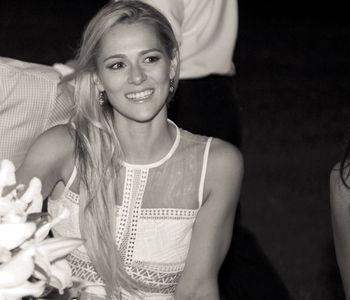
JULIETTE BRINDAK BLAKE was just 13 years old when she founded Miss O and Friends, a safe social media site for tween girls, based on characters she created and drew when she was 11. She has since grown Miss O and Friends into a multimillion-dollar business that gives tween girls a place to socialize, play games, get advice, and build self-esteem. The site has more than 1 million monthly unique visitors. Juliette’s company is now greenlighted for a scripted series with the largest video platform in the world, loosely based on Miss O and Friends, who are middle schoolers working on a website and the day-to-day drama in their lives. Running the business while still in high school was a juggling act of studying for tests while meeting with investors and growing a company. Now out of college, Juliette runs the business full-time. Check out Miss O at missoandfriends.com.
ALEXANDRA (ALEX) DOUWES and NELLIE MORRIS created a company that exemplifies the adage “do what you know” (and figure out what you don’t know along the way). At age 23 they founded Purpose Generation, a consulting firm that helps iconic brands better understand and engage millennials. They are experts in that coveted target market, being part of it themselves, and work with a team of young strategists and freelancers to help companies connect with the next generation of consumers and talent. Their clients include Campbell’s Soup, Wells Fargo Bank, and AARP. After graduating from Princeton University, Nellie helped launch the first regulated social stock market in South Africa and was chosen to be one of 100 innovators to fly from San Francisco to London as part of British Airways “UnGrounded: Innovation Lab in the Sky.” Alex grew up in London and the Netherlands before moving to the United States to study international relations and play field hockey at Princeton. She started her career with a short stint at the Acumen Fund before joining a global management consulting practice. The two friends and business partners met in college but found out years later that they were born in the same London hospital. Some things are just meant to be. Check them out at purposegeneration.com.
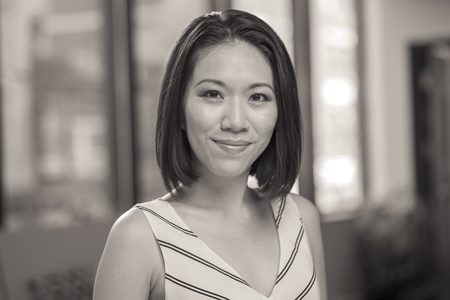
DEBBIE FUNG was 23 when she cofounded Yoga Tree, a yoga studio in Toronto, Canada. Now, she co-owns yoga studios and has plans to open more. She and her partner, Jason (they met at university and later married), traveled to India after college. There they learned about yoga and Ayurvedic medicine, and when they got back, they were certain that working for other people’s companies was not for them. So they took the money they had planned to spend buying a condo and used it to start Yoga Tree, which now offers some 2,000 classes per month. It was recognized as one of Canada’s fastest-growing companies, and they made yoga, which was still obscure when they were getting started, a mainstream fitness necessity. Get out your yoga mat and check out Yoga Tree at yogatree.ca.
FE MAIDENS (pronounced “Iron Maidens”—Fe is the chemical symbol for iron) is an all-girl robotics team at Bronx High School of Science, a magnet school in New York City. Their goal is to further the role of women in the fields of science and engineering and to encourage more girls to participate in these fields. The team of 60 works to foster a greater love and appreciation for science and technology and to promote the ideals of FIRST (For Recognition of Science and Technology) and to give their members the opportunity to advance their skills and knowledge. Through competitions and teamwork, they aim to dissolve the prejudices against women in technology and engineering. Team captain Charlotte collected the team’s advice for this book. Check them out at femaidens.wordpress.com.
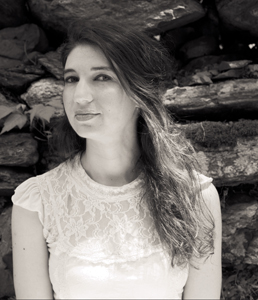
From the time ALYSON GREENFIELD went to see a play at age 6, she knew she wanted to be on stage. Even though no one in her family played music, she begged her parents for piano lessons until they agreed, which allowed her to begin her singer/songwriter career at age 10. She plays drums, keyboards, and guitar, as well as the chord organ and synthesizer. Inspired by the all-female festival Lilith Fair, she started her own indie women’s music festival, which grew to five stages on three nights in New York City. Tinderbox Music Festival ran for four years straight and showcased more than 100 emerging female musicians from all over the world. Alyson now plays music at venues around New York City, writes musical scores for films, and produces events focused on social justice and arts empowerment in the classroom. She also teaches English at Hunter College. Find her at alysongreenfield.com.
PRISCILLA GUO attended Hunter College High School in New York City. There, she was president of Girl Up, UNICEF, and Science Club. She was also a poetry ambassador for Girls Write Now as well as one of Business Insider’s “Most Impressive High School Graduates” in 2014. In Priscilla’s junior year, then-Mayor Bloomberg appointed her to serve on the New York City Youth Board, where she advised on the growth and development of youth programming. Priscilla also founded a summer youth program to teach computer coding to public housing students in Harlem, where she teaches every summer, exposing kids to potential careers and pathways to success. Priscilla won a prestigious scholarship to the US Senate Youth Program for students interested in public service and was one of two to represent New York City in the nation’s capital. As part of the program, she met with then-President Barack Obama, Justice Antonin Scalia, and International Monetary Fund director Christine Lagarde. Priscilla studies technology, policy, and society at Harvard University, where she serves as copresident of Harvard Women in Computer Science and copresident of Harvard Undergraduate Women in Business. At the Harvard Institute of Politics, she is the technology director and STEAM (science, technology, engineering, art, and mathematics) chair. Priscilla writes for the Harvard Political Review and and is interested in exploring the intersection between politics and technology. Find her at twitter.com/priscillawguo.
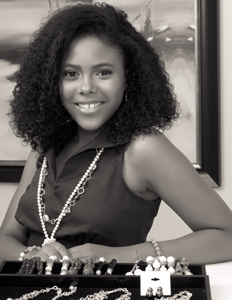
GABRIELLE JORDAN started Jewelz of Jordan, selling gem-studded necklaces, earrings, and bracelets, when she was 9 years old. Once she learned how to make jewelry on YouTube, there was no stopping her. At 16 years old, she expanded her collection to include her Girlz line of jewelry, each piece of which comes with an inspirational message for young girls, and the Tigerlily collection, a portion of whose proceeds go toward the Tigerlily Foundation to provide services to girls and women diagnosed with breast cancer. Gabrielle, who lives in Bowie, Maryland, is the author of the book The Making of a Young Entrepreneur and runs the ExCEL Youth Mentoring Institute, which helps young entrepreneurs launch their businesses. Find her at gabriellejordaninspires.com.

NEEKA MASHOUF credits her dad with her love of engineering and entrepreneurship. When she was a kid, he gave her electrical components and circuit boards and let her create . . . fruit with electronic components sticking out? No matter, the lessons stayed with her. At UC Berkeley, Neeka pursued simultaneous degrees in materials engineering and business administration and leads the battery unit of CalSol, UC Berkeley’s solar vehicle team. She was a builder of the solar car and drove the car in the American Solar Challenge, a 2,000-mile (3,200 km) road race across the United States that started with a lap race around a Formula One racetrack in Pittsburgh and then took to the road from Ohio to South Dakota, driving through national parks to celebrate the National Park Service’s centennial. She also founded a startup at UC Berkeley’s Social Innovator OnRamp incubator aimed at providing renewable energy to people around the world who don’t have access to electricity. Before this she designed and built an inflatable solar oven and a solar cell phone charger. At age 13, along with her twin sister, she started a company to sell their handmade crystal jewelry and reached international sales. Check her out at neekamashouf.com.

Originally from Israel, NAAMA RAZ-YASEEF knew she wanted to work in the field of ecology and environmental science but after working at a private environmental consulting company, she felt her work wasn’t having enough impact. So she moved halfway across the world to study in Northern California and work at the Lawrence Berkeley National Laboratory. She learned that in rural Zimbabwe, where it rains only a couple of months out of the year, women struggled to grow staple foods in the drier seasons, and they had to carry water from a river in buckets balanced on their heads, up a steep hill, just to get water to their crops. So she founded a nonprofit pilot program to create a watering method for the community and developed an affordable mobile irrigation system to water crops year-round. Find out more about what Naama is up to at http://rynaama.wixsite.com/naama-razyaseef/home.

CHELSEA SILER is a golfer, ultramarathoner, and senior communications officer for the Canadian Broadcasting Company/Radio-Canada (where she connected the network’s brand with Canadians using social media during the Rio Olympics), as well as founder and owner of the public relations and marketing firm Five & Vine in Vancouver, BC. She’s in charge of communication, brand management, and crisis management in the digital and social space for Canada’s second most recognizable brand. But let’s back up a minute: yes, we said ultramarathoner. That means she runs 100-mile (160 km) races and doesn’t have any intention of slowing down. Chelsea works hard and if she wants to take on a new job responsibility that seems beyond her pay grade, she just asks and makes it clear she’s there to do the job—even an unglamorous job if it’s a means to an end—until she reaches her goal. It’s that ultramarathon mentality. Find her at twitter.com/chelseasiler.
![]()

